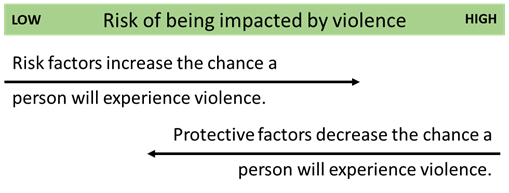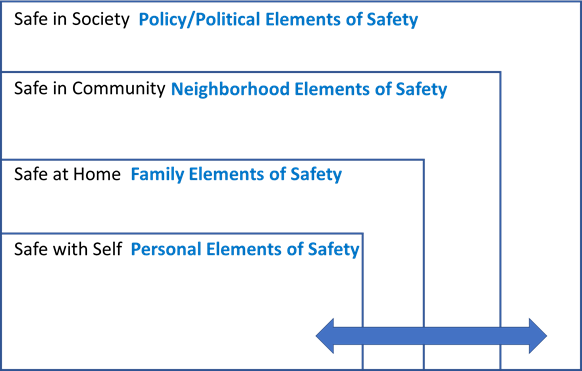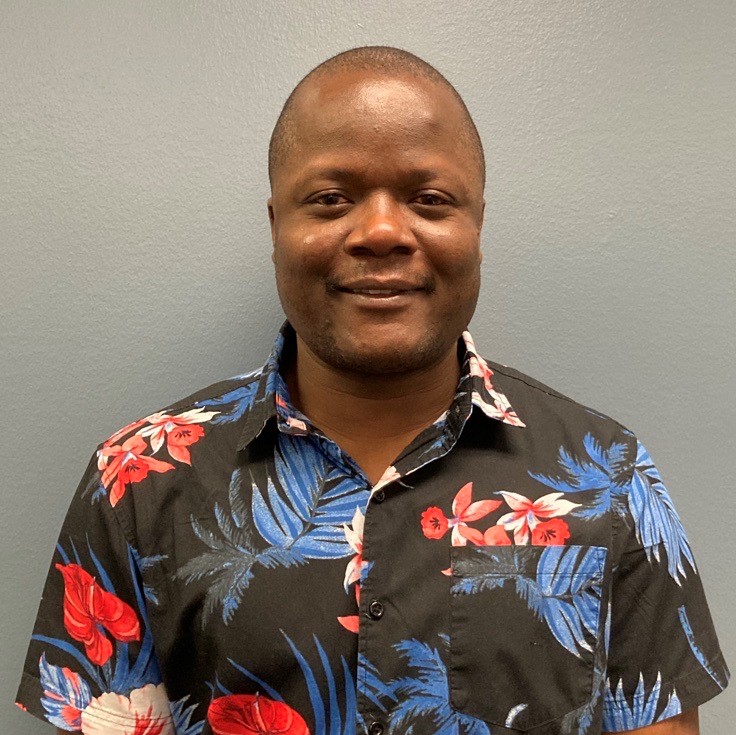Public Health and Public Safety in Austin
Austin remains one of the safest big cities in the United States. However, not all residents experience the same level of safety due to concentrations of violence in specific areas.
Violence doesn’t just happen. Violence occurs within a context informed by history, policies, and access to resources. In Austin, systemic racism, economic disinvestment and segregation, and over policing have created very different environments for residents based on where they live. We see the impact of these differing conditions in school ratings, crime reports, food desserts, and more.
Preventing violence requires understanding this context and the wants, needs, and dreams of those most impacted by violence. This understanding informs a public health approach to implementing strategic changes in an environment that will support the changes an individual experiences through healing, skill-building, and deepening community connections.
The CDC’s evidence-based approach to preventing violence looks at the factors present in a society, community, home, and individual that either create greater risk of or provide protection from violence. For example, witnessing violence puts a person at greater risk of experiencing most types of violence; living in a supportive and connected community reduces the risk from nearly as many. Assessing risk and protective factors guides which investments or interventions can best change the trajectory of a person’s life – and create positive ripple effects throughout the community.

This work is not simple; generations of systemic injustice and compounding trauma take time to heal. OVP will build trust, connections, and local capacity to invest in community with integrity and accountability. Together we will create new possibilities for an Austin where everyone has the access hope, peace, prosperity, and health that safety provides.
Safety Framework
While reducing crime is one measurement of OVP’s work, the big-picture goal is creating access to safety everywhere a person needs it. Every Austinite should feel safe with themselves, in their home, in their neighborhood, and as a resident of the city.

The safety framework shows how an individual can be at risk or protected within each of these contexts at the same time. It can show where violence is occurring and how that affects the experience of safety in other contexts. And understanding the source of the violence versus the symptoms informs which strategies will address the causes and prevent future violence.
Meet the Team
Michelle Myles, Manager Office of Violence Prevention
Ms. Myles graduated from the University of Alaska Anchorage with a Master of Science in Clinical Psychology with an interest in trauma, attachment theory and mindfulness. Throughout her career, Ms. Myles has worked to increase understanding leading to healing for individuals who have experienced trauma, abuse, and violence. In her current role as the Manager for the Office of Violence Prevention in Austin Texas, Ms. Myles seeks to uplift the voices of those most impacted by trauma and invest in targeted interventions to make Austin a place where hope, peace, prosperity, and health is experienced by everyone.
Email: Michelle.Myles@austintexas.gov
Quentarius Jones, Senior Research Analyst
Quen Jones joined the Office of Violence Prevention as a Research Analyst, Senior in November 2021. In his role he will contextualize data- and research-informed decision making through community input and experiences to help build a healthier Austin. A graduate of Abilene Christian University, Quen moved to Austin in 2015 to serve as an AmeriCorps member with Keep Austin Housed. He continued working to end homelessness, providing case management to support locating housing, housing stability, and mental health before transitioning into Data Administration and IT.
Email: Quentarius.Jones@austintexas.gov
 Henry Agbede, Public Health Program Coordinator
Henry Agbede, Public Health Program Coordinator
Henry Agbede holds a master’s degree in public health from Grand Canyon University, Arizona. He has worked as a program specialist with the health promotion and disease prevention unit of the Austin Public Health for 6 years. His previous experience encompasses wide areas of public health services ranging from campaign on teenage pregnancy reduction, HIV/AIDS stigma eradication advocacy, and combating infectious diseases in sub-Saharan Africa. His mission in the current role is creating a safe and peaceful Austin community where every Austenite will thrive regardless of language spoken, sexual orientation, race or religion using local public health data.
Email: Henry.Agbede@austintexas.gov


.jpg)
.jpg)
.jpg)